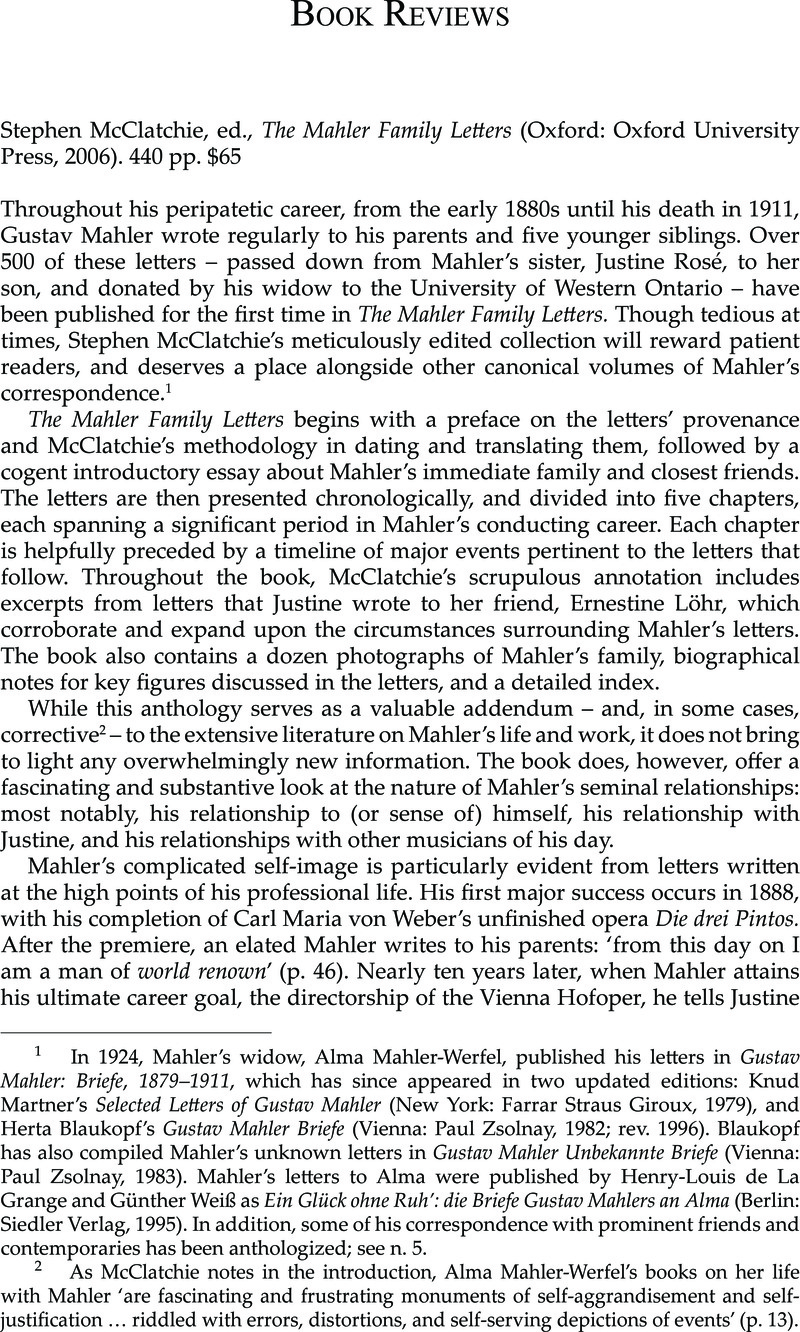No CrossRef data available.
Published online by Cambridge University Press: 13 April 2011

1 In 1924, Mahler's widow, Alma Mahler-Werfel, published his letters in Gustav Mahler: Briefe, 1879–1911, which has since appeared in two updated editions: Knud Martner's Selected Letters of Gustav Mahler (New York: Farrar Straus Giroux, 1979)Google Scholar , and Herta Blaukopf's Gustav Mahler Briefe (Vienna: Paul Zsolnay, 1982; rev. 1996)Google Scholar . Blaukopf has also compiled Mahler's unknown letters in Gustav Mahler Unbekannte Briefe (Vienna: Paul Zsolnay, 1983)Google Scholar . Mahler's letters to Alma were published by Henry-Louis de La Grange and Günther Weiβ as Ein Glück ohne Ruh': die Briefe Gustav Mahlers an Alma (Berlin: Siedler Verlag, 1995)Google Scholar . In addition, some of his correspondence with prominent friends and contemporaries has been anthologized; see n. 5.
2 As McClatchie notes in the introduction, Alma Mahler-Werfel's books on her life with Mahler ‘are fascinating and frustrating monuments of self-aggrandisement and selfjustification … riddled with errors, distortions, and self-serving depictions of events’ (p. 13).
3 This statement is echoed in a striking remark that Mahler made about his compositions, recorded by Natalie Bauer-Lechner: ‘A splendid example for creative people is Jacob, who struggles with God until He blesses him … God also does not want to bless me; only in frightful struggle over the existence of my works do I wrest it from Him.’ Natalie Bauer-Lechner, Recollections of Gustav Mahler, trans. Newlin, Dika, ed. Franklin, Peter (London: Faber, 1980): 76Google Scholar.
4 In his essay, ‘Gustav Mahler: Formation and Transformation’, historian Carl Schorske characterizes the dichotomy as follows: ‘As conductor, his task was to preserve and invigorate [the classical tradition], a task in which he deeply believed. As composer, he aspired to construct a picture of the world true to his modern experience.’ Schorske, Carl, Thinking with History: Explorations in the Passage to Modernism (Princeton: Princeton University Press, 1998): 172Google Scholar.
5 Mahler's correspondence with Richard Strauss is documented in Blaukopf's, HertaGustav Mahler–Richard Strauss Briefwechsel 1888–1911 (Munich: R. Piper, 1980)Google Scholar.